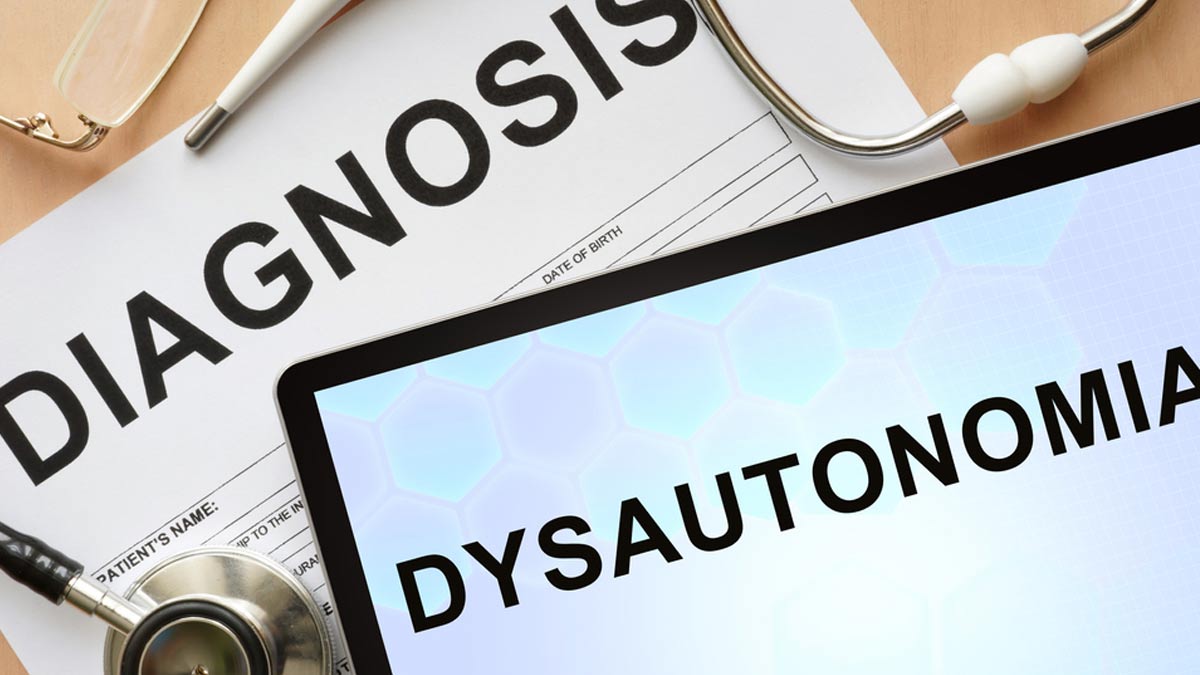
Living with dysautonomia can be more challenging than it might first appear. This condition disrupts the Autonomic Nervous System (ANS), which controls essential bodily functions, such as heart rate, blood pressure, and digestion. However, one of the often overlooked impacts of dysautonomia is its effect on cognitive function. Many individuals with this condition struggle with concentration, memory, and overall mental clarity, often describing a sense of mental fog. We spoke to our expert Dr Vinit Banga, Director, Neurology and Head Neurointervention, Fortis Hospital, Faridabad, who explained how dysautonomia affects cognitive function and is crucial for managing the condition and improving quality of life.
Table of Content:-
According to Dysautonomia International, dysautonomia is a broad term encompassing various medical conditions that result in dysfunction of the Autonomic Nervous System. More than 70 million people around the world are affected by different forms of dysautonomia, and it can impact individuals of any age, gender, or race.
The Autonomic Nervous System and Cognitive Function

The ANS plays a vital role in maintaining homeostasis within the body, but its influence extends beyond purely physical functions. “The ANS also has connections with the central nervous system, including areas of the brain involved in cognition, such as the prefrontal cortex and hippocampus. Dysregulation of the ANS can, therefore, have a ripple effect on cognitive processes,” said Dr Banga.
When the ANS is compromised, as in dysautonomia, it can lead to insufficient blood flow to the brain, a condition known as cerebral hypoperfusion. “This reduced blood flow can starve brain cells of oxygen and nutrients, impairing their function and leading to cognitive symptoms. Patients with dysautonomia often report 'brain fog,' a term used to describe a state of mental confusion and difficulty concentrating,” said Dr Banga.
Also Read: Everything you Need To Know About Dysautonomia From A Neurologist
Symptoms of Cognitive Dysfunction in Dysautonomia

Cognitive dysfunction in dysautonomia can vary widely from person to person but typically includes symptoms, such as:
- Difficulty Concentrating: Patients often struggle to focus on tasks for extended periods, affecting their ability to work, study, or perform daily activities.
- Impaired Memory: Short-term memory loss is common, with individuals finding it challenging to remember recent conversations, appointments, or instructions.
- Slowed Thinking: Mental processes may feel slower, making it hard to think clearly or make decisions quickly.
- Word-Finding Difficulties: Some patients experience trouble recalling words or names, leading to frustration during conversations.
These cognitive symptoms can be exacerbated by other dysautonomia-related issues, such as chronic fatigue, pain, or sleep disturbances.
Also Read: What Is Cognitive Distortion And How Does It Affect Your Mental Health?
Coping Strategies and Management
Managing cognitive dysfunction in dysautonomia requires a comprehensive approach that addresses both the physical and mental aspects of the condition. Dr Banga listed some effective strategies as follows:

- Medical Management: Medications that stabilise blood pressure or improve blood flow can help reduce cognitive symptoms. Additionally, treating underlying conditions like sleep apnea can improve overall cognitive function.
- Cognitive Rehabilitation: Techniques, such as memory exercises, mindfulness, and Cognitive Behavioural Therapy (CBT) can help patients manage symptoms and improve mental clarity.
- Lifestyle Modifications: Staying hydrated, maintaining a balanced diet, and engaging in light physical activity can support overall health and cognitive function. Additionally, breaking tasks into smaller, manageable steps can reduce cognitive load.
Bottomline
Dr Banga concluded, “Dysautonomia's impact on cognitive function is a significant challenge for many patients. Understanding the connection between the autonomic nervous system and cognitive health is essential for developing effective management strategies. By combining medical treatment with lifestyle adjustments and cognitive support, individuals with dysautonomia can work towards improving their cognitive function and overall quality of life.”
[Disclaimer: This article contains information provided by an expert and is for informational purposes only. Hence, we advise you to consult your own professional if you are dealing with any health issues to avoid complications.]
Also watch this video
How we keep this article up to date:
We work with experts and keep a close eye on the latest in health and wellness. Whenever there is a new research or helpful information, we update our articles with accurate and useful advice.
Current Version